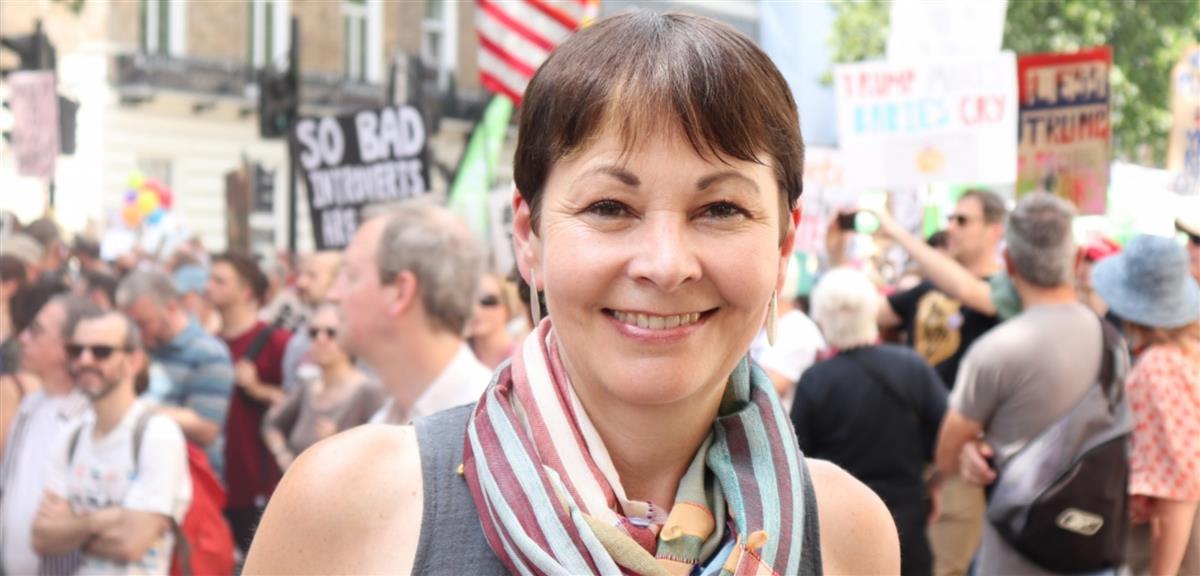
The role of citizens’ assemblies
As the UK’s Climate Assembly prepares to meet for the first time in Birmingham this weekend (24-26 January), Caroline Lucas explains why citizens’ assemblies have a vital role to play in the fight against climate change.
Caroline Lucas
Fri 24 Jan 2020
“I felt like I’d won the lottery when I got the letter. I’d be daft not to do it – it’s amazing to get the chance to have a say and influence what may happen in the future.”
Those are the words of Marc from Newcastle who is one the 110 citizens who will be spending this weekend at a hotel in Birmingham for the first meeting of the Citizens’ Assembly on climate change. It feels like a pivotal moment in our politics and, for me, incredibly exciting.
Not all members of the Assembly will be as enthusiastic as Marc. There are nearly 20 who aren’t particularly concerned about climate change, though they are sufficiently interested to agree to take part. In contrast, 54 say they are very concerned. There’s a full range of opinions in the Assembly to represent the diverse opinions across the UK.
The process of selecting them has been taking place since November. Households were randomly selected, invitations sent out and of the 1,800 or so who replied, people were selected from all four nations of the UK, and in age, ethnicity, gender, education and town or country-dwellers, they represent all of us.
It should make for some very interesting discussions.
I was struck by Marc’s comments for another reason: his pride at being given a say over his future. It was quite an indictment of our democracy that he doesn’t feel our current electoral process is giving him this. And no wonder. With our first-past-the-post voting system, weak enforcement over election spending and over-centralised power structures, it’s not surprising that people think they aren’t being listened to and their views don’t count.
I’ve been a supporter of citizens’ assemblies as a way of addressing the climate emergency for years. The failure of government to tell people the truth about the scale of the crisis we face and to take the required action has only reinforced my belief that citizens’ assemblies have a vital role to play.
They are not there to compete with the parliamentary process but to complement it. This Citizens’ Assembly on climate change has been commissioned by six House of Commons select committees, including the Environmental Audit Committee (of which I’ve been a member), Treasury, Transport and Business and Energy.
Many members of those Select Committees, of course, are no longer MPs. Nor has Boris Johnson’s government made any promise to listen to the Assembly’s recommendations. The Business Secretary Andrea Leadsom was non-committal in her comments about it, saying only that she was looking forward to seeing its conclusions.
Another disappointment is that the Assembly has been tasked with coming up with ways of achieving the government’s policy of net-zero by 2050, a date which is far too late to address the climate emergency. We should be aiming instead for decarbonisation by 2030, in line with both the requirements of the science and of equity. But despite these shortcomings, this first major Parliament-backed citizens’ assembly marks an important moment in strengthening our democracy.
Engaging citizens on an issue as important as the climate emergency is crucial if we are to take people with us as we transition to a low-carbon economy. Environmentalism is not something that should be done to people, it must be done with them and should, in the process, give people fresh agency and hope for the future.
A year ago I said if we are to make the transition to net-zero with our democracy and society intact, Parliament should urgently establish a citizens’ assembly to draw up a plan of action that has the public’s consent.
I am delighted that this is now happening. I shall be in Birmingham this weekend to witness the first of the four Assembly meetings, when members will be hearing from a range of expert voices about the challenges facing us all. I wish them well in their discussions.
SOURCE: GREEN WORLD